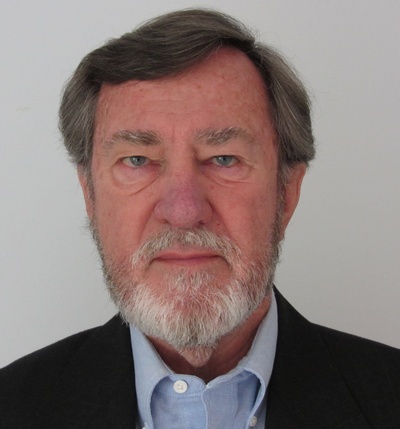2000 Brian Hall
Dr. Brian K. Hall is the George S. Campbell Professor of Biology and University Research Professor Emeritus at Dalhousie University in Halifax, Nova Scotia. Professor Hall has researched and extensively written on bone and cartilage formation in developing vertebrate embryos. He is an active participant in the evolutionary developmental biology (EVO-DEVO) debate on the nature and mechanisms of animal body plan formation. Professor Hall has proposed that the neural crest tissue of vertebrates may be viewed as a fourth embryonic germ layer. As such, the neural crest – in Hall’s view – plays a role equivalent to that of the endoderm, mesoderm, and ectoderm of bilaterian development and is a definitive feature of vertebrates (as hypothesized by Gans and Northcutt [1983]). As such, vertebrates are the only quadroblastic, rather than triploblastic bilaterian animals. In vertebrates the neural crest serves to integrate the somatic division (derived from ectoderm and mesoderm) and visceral division (derived from endoderm and mesoderm) together via a wide range novel vertebrate tissues (bone, cartilage, sympathetic nervous system, etc…).
He has been associated with Dalhousie University since 1968. Since his retirement in 2007, he has been University Research Professor Emeritus and Emeritus Professor of Biology.
Over the course of his career, Hall’s laboratory research has focused on developmental biology and evolutionary biology. His work played a major role in integrating these two fields into the discipline now known as Evolutionary Developmental Biology (evo-devo). He and his students, according to one source, “pioneered an epigenetic view of bone differentiation and of vertebrate development in general, and highlighted the importance of epigenetic tissue interactions in vertebrate evolution.” His 1975 paper “Evolutionary consequences of skeletal differentiation” (American Zoologist) marked the beginning of “the process of building a bridge between evolutionary and developmental biology from the developmental biology side.” His 1992 textbook Evolutionary Developmental Biology is widely viewed as definitive. “This work defines a field, which, in turn, has revitalized the study of evolution,” writes one source.
Hall is particularly interested in the vertebrate neural crest and in skeletal tissues that arise from neural crest cells.
He has also written extensively about the history of evolutionary biology and about leading figures in the field. “Hall’s understanding of the intellectual roots of his discipline,” one source observes, “deepens his perspective on current theoretical issues and colors much of his writing.”
Hall has spent his career in the Biology Department of Dalhousie University in Halifax, Nova Scotia, where he was hired as an assistant professor in 1968. He was made full professor in 1975, was Chair of the department from 1978 to 1985, was Izaak Walton Killam Research Professor from 1990 to 1995, was Faculty of Science Killam Professor of Biology from 1996 to 2001, George S. Campbell Professor of Biology from 2001 to 2007, and University Research Professor from 2002 to 2007.
He was also Canada Council for the Arts Killiam Research Fellow from 2003 to 2005. Since 2007, he has been University Research Professor Emeritus and Emeritus Professor of Biology.
In 2008 he was appointed Visiting Distinguished Professor at Arizona State University in Tempe, Arizona.
Hall received the first D.Sc. in Biological Sciences from The University of New England in 1978.
He was elected a Fellow of the Royal Society of Canada (FRSC) in 1985, won the Fry Medal from the Canadian Society of Zoologists in 1994, won the International Craniofacial Biology Distinguished Scientist Award in 1996, and won the Alexander Kowalevsky Medal and honorary membership in the Saint-Petersburg Society of Naturalists in 2001.
He was elected a Foreign Honorary Member of the American Academy of Arts & Sciences in 2002, won an NSERC Award of Excellence in Research in 2002, won a Canada Council for the Arts Killam Research Fellowship for 2003-2005, was named an honorary member of The Golden Key International Honour Society in 2003, and won the $100,000 Killam Prize in Neural Sciences from the Canada Council for the Arts in 2005.
The “Hall Award” was established by the Canadian Society of Zoologists in 2006 for the best student platform paper presented in the Comparative Morphology and Development Division at the Society annual meeting.
He was awarded an honorary Doctor of Laws (LL.D) degree by the University of Calgary in June 2014.
